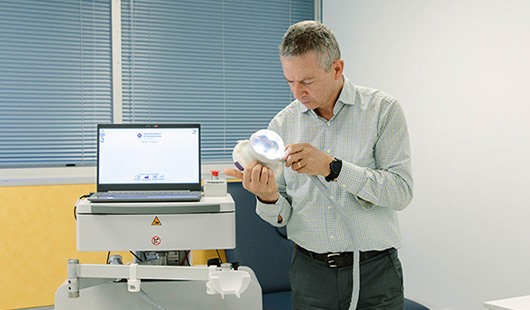Cognitive Decline and Aging: Slowing the Effects
:max_bytes(150000):strip_icc()/GettyImages-1435012411-3c4f1cc3bd0e476ba81895e10daa5e2a.jpg)
Cognitive decline—or cognitive impairment—is a reduction in the ability to remember, reason, learn, and pay attention. While some loss of these thinking skills is a normal part of aging, cognitive decline is when the loss is worse than expected for your age.
Noticeable cognitive decline is most common in people older than 70, though younger adults are susceptible, too, as a number of neurological and psychological conditions cause this condition.
This article breaks down the signs of cognitive decline, how it progresses, its causes, as well as what you can do to take this condition on.
FG Trade Latin / Getty Images
Symptoms and Effects of Cognitive Decline
Cognitive decline causes a broad range of deficits in memory, reasoning, concentration, and learning. Some healthcare providers categorize cognitive decline into four stages based on the symptom severity.
Very Mild Cognitive Decline
There are no reported signs in the earliest stages of cognitive decline. However, connections between neurons (brain cells) change and break down long before you notice symptoms.
This progresses to very mild cognitive decline (or subjective cognitive decline) when symptoms are reported but not evident in diagnosis. You may have more lapses in memory, such as forgetting where you put your keys, meetings you have scheduled, and the names of people, or you have difficulty staying focused.
Mild Cognitive Decline
Many healthcare providers view mild cognitive decline—often called mild cognitive impairment (MCI)—as an intermediate stage between typical age-related cognitive decline and dementia. This stage of cognitive decline causes noticeable symptoms that start to impact work and daily living, including:
- Getting lost traveling to a familiar location
- Having difficulty remembering or learning names
- Reading without retaining any of the material
- Losing a valuable or treasured item
- Experiencing difficulty socializing or being in social settings
- Forgetting words or the names of loved ones
- Performing noticeably worse at work
Moderate Cognitive Decline
With moderate cognitive decline—or mild dementia—the symptoms are apparent in clinical evaluation. Hallmarks of moderate cognitive decline include:
- Reduced awareness of current events and news
- Difficulty remembering your personal history
- Difficulty concentrating
- Loss of ability to take care of finances, travel, and work
- Denial of the condition
- Retained ability to remember faces, time or location, and familiar places
Disorientation around time and place is another sign, as is loss of arithmetic ability and inability to dress independently. As this stage progresses to moderately severe cognitive decline or moderate dementia, a person may no longer be able to live independently.
Severe Cognitive Decline
Later stages, including severe and very severe cognitive decline, involve a continued deterioration of cognitive abilities. Signs of severe cognitive decline include:
- Sometimes, forgetting a spouse’s name
- Difficulty remembering past events
- Lack of awareness of time, location, or season
- Difficulty with counting down
- Inability to live independently, incontinence
- Delusional behavior, paranoia, agitation
- Obsessive behavior
- Anxiety
In very severe cognitive decline (severe dementia), people lose their ability to read, write, and speak and require assistance with every aspect of daily living. Eventually, walking and motor abilities gradually deteriorate.
When Does Cognitive Decline Begin?
Your brain constantly changes throughout your life, and some cognitive decline is expected after middle age. The older you are, the more likely you are to experience signs; mild cognitive impairment was estimated to affect 6.7% of 60- to 64-year-olds but more than 25% of 80 to 84-year-olds.
In one cross-sectional study of 29,000 participants with dementia, the age of symptom onset was 73 for women and 70 for men. Other studies have found that early signs of cognitive decline can start before age 60 and even arise in your 20s or 30s.
Race or ethnicity can also affect how early your cognitive function begins to decline. Studies have found that African American and Latinx populations are disproportionately affected by cognitive decline and experience symptoms between two and six years earlier than their white counterparts.
In addition, cognitive decline can accompany psychological conditions like major depressive disorder or other diseases, which affect those of all ages, races, and ethnicity.
Post COVID Brain Fog
A growing body of research indicates that some people experience cognitive decline for months to years after a COVID-19 infection. In particular, researchers found effects on executive function, which includes working memory, adaptable thinking, and self-control.
How Fast Does Cognitive Decline Happen?
Cognitive decline can develop rapidly or gradually, depending on the underlying cause. In the research, between 8% and 13% of those with mild cognitive impairment develop dementia, most often Alzheimer’s disease, within one year.
Certain conditions can contribute to decline, with cognitive changes seen within weeks or months. This is the case for a range of brain infections, injuries, neurological diseases like Alzheimer’s disease, other diseases, or certain medications.
Mild Cognitive Impairment and Dementia
While mild cognitive impairment increases your risk of dementia conditions, such as Alzheimer’s disease, not all cases progress this way. Researchers found as many as 16% of those with MCI see a restoration of normal cognition within a year. However, other studies found as many as 65% develop full dementia three years after a mild cognitive impairment diagnosis.
Causes and Risk Factors
Fundamentally, cognitive decline occurs as neurons (brain cells) in certain parts of the brain start to weaken and die. A wide range of diseases and health factors can bring this on, including:
- Brain injury due to trauma, concussion
- Diabetes
- Stroke
- Endocarditis or other types of heart infection
- Encephalitis, meningitis, or other brain infections
- Viral or bacterial infections
- Alzheimer’s disease, Parkinson’s disease, multiple sclerosis (MS) and other neurodegenerative disorders
- Major depressive disorder, depression
- Schizophrenia, psychosis
- Kidney, liver, or thyroid disease
- Alcohol or drug use or withdrawal
- Specific corticosteroid, sedative, antihistamine, or antidepressant medications
Risk Factors
Several health factors can raise your risk of developing cognitive decline, including things that are within your control and those that aren’t. Examples are:
How to Slow Cognitive Decline
In most cases, cognitive decline is irreversible. But there are things you can do to delay its progress. This means addressing any underlying health factors and making lifestyle changes. The following are some ways to slow down cognitive decline:
- Get active: Incorporating regular exercise or physical activity—at least 150 minutes of moderate activity a week—takes on underlying health factors and improves brain function.
- Eat healthy: Studies suggest that healthy diets, such as the DASH (Dietary Approaches to Stop Hypertension) and MIND (Mediterranean-DASH Intervention for Neurodegenerative Delay) diets, can slow cognitive decline; emphasize fresh vegetables and lean proteins and avoid sugars, salt, and processed foods.
- Manage diabetes: If you have diabetes, managing your blood sugar can slow cognitive decline.
- Treat hypertension: Get treatment, take medications, and assess your diet to lower blood pressure if you have hypertension.
- Take on hearing loss: Since hearing loss is a risk factor for cognitive decline and can contribute to it, get your ears checked and wear hearing aids or other assistive devices.
- Consider counseling: Depression and cognitive decline can go hand in hand; therapy or counseling to manage the condition can help.
- Brain training: Brain games, such as crosswords, Sudoku, and others, engage your mind, exercising your reasoning, memory, and other cognitive skills; researchers found playing these types of games is effective in slowing dementia progression.
Testing to Confirm Cognitive Decline
A cognitive decline diagnosis primarily begins with the individual or a family member reporting symptoms and growing concerned about their condition. A healthcare provider will perform additional evaluations to get at the root causes of the issue.
To confirm a suspected case, a healthcare provider—often a neurologist, neuropsychiatrist, or other specialist—may perform the following tests:
- Cognitive and neurological testing: Providers use a wide range of tests to assess your cognitive function; they evaluate your ability to remember, solve problems, coordinate movements, language ability, and math skills.
- Imaging: A healthcare provider may call for X-ray, magnetic resonance imaging (MRI), and positron-emission tomography (PET) imaging of your brain to screen for stroke, tumor growth, or other neurological conditions.
- Psychiatric evaluation: You may need a psychiatric assessment of mood disorders or behavioral changes accompanying your symptoms.
- Cerebrospinal fluid (CSF) test: Healthcare providers use this test to diagnose Alzheimer’s and other types of dementia. This involves testing a sample of the fluid surrounding your spinal cord and brain.
- Blood tests: Abnormal levels of beta-amyloid, a protein in the blood, are a sign of Alzheimer’s disease. Blood tests may also help detect risk factors or other potential causes.
Coping With Changes
The impact of cognitive decline can be severe, affecting your ability to function and live independently. Often, living with this condition means learning to adapt to it. Consider the following coping strategies:
- Keep a routine: Eat meals, go to bed, bathe, and schedule other daily activities at consistent times.
- Understand the treatment: Keep track of your medications and take prescriptions on schedule using a pill organizers or apps.
- Reminders: Use Post-It notes, dry-erase boards, apps, or alarms to remind you to take medications or plan for appointments.
- Organize: Keep a planner or use apps to keep track of appointments and important tasks; craft to-do lists.
- Enjoyable activities: Schedule enjoyable activities and do them at consistent times every day.
- Accessible clothing: Choose loose-fitting clothing that’s easy to put on and take off.
- Falls prevention: Use a shower chair and install anti-slip runners in the bath, keep your home well-lit, and clear away trip hazards to prevent falls.
Summary
Cognitive decline is a loss of reasoning, memory, concentration, language, and problem-solving skills. Early signs are less severe, but in most cases, the condition gets worse and progresses to dementia, which makes you unable to function independently.
Neurological diseases like Alzheimer’s disease, brain injury, medication side effects, and systemic (body-wide) diseases are among the many causes. Adopting lifestyle changes and treating the underlying causes of cognitive decline can slow its progress.
link






